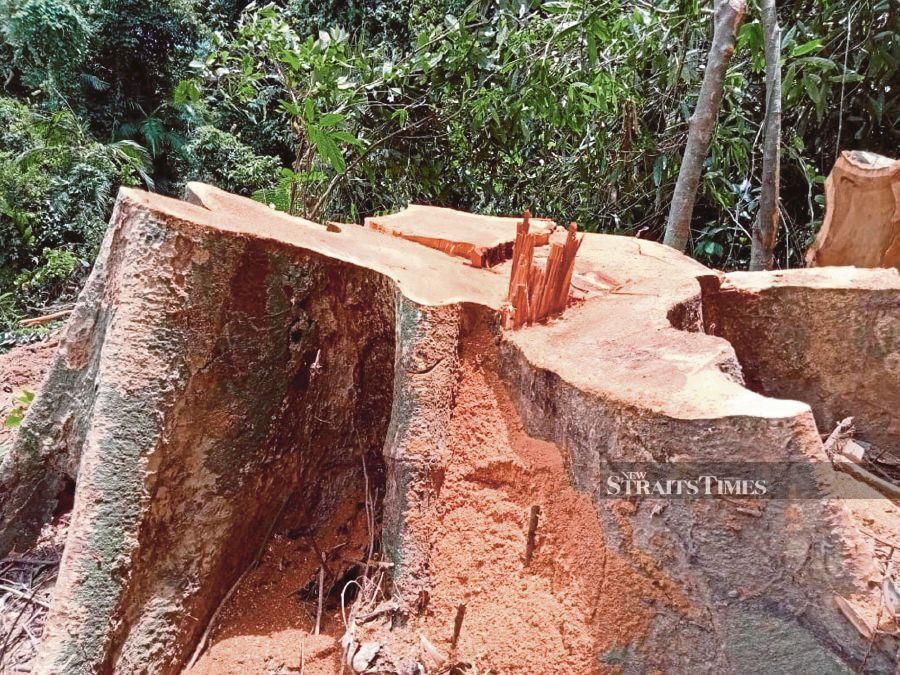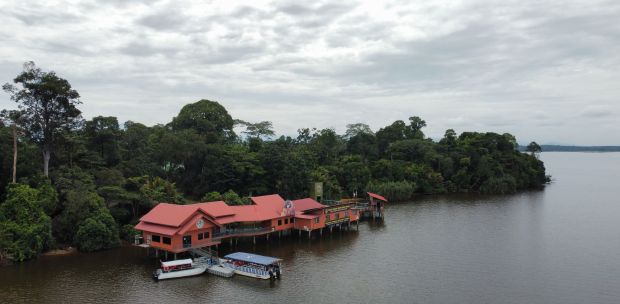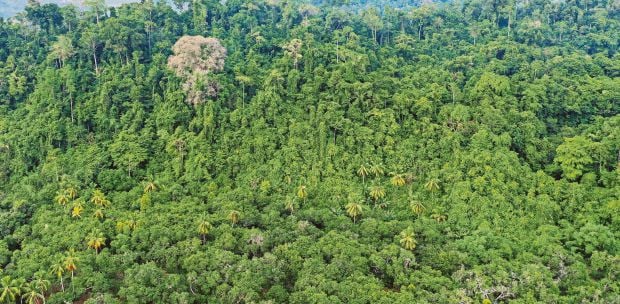I've long known that my fellow Malaysians care deeply about the natural world, in particular our tropical rainforests, mangroves and coral reefs, and the majestic creatures that call those habitats home.
But even I was blown away by the results of a recent poll.
According to the survey conducted last month involving more than 1,000 Malaysians, 80 per cent of us are either extremely or very concerned about the global biodiversity crisis, which involves one million species worldwide facing extinction.
The poll is aimed at gauging public opinion in the run-up to a summit to be held later this year in Kunming, China, where more than 190 countries are expected to finalise and approve the Post-2020 Global Biodiversity Framework.
The survey represents the first time that Malaysians have been asked to weigh in on a proposal to protect 30 per cent of the world's lands and oceans by 2030.
Known as "30x30," this plan is championed by the High Ambition Coalition for Nature and People, an intergovernmental group of more than 85 countries, and evolves around the central elements of the Global Biodiversity Framework.
According to the poll, 87 per cent of Malaysians are aware of the negotiations underway and 96 per cent support the 30x30 plan. Our neighbours feel roughly the same with 98 per cent of Indonesians and 95 per cent of Filipinos supporting the goal.
My suspicion is that many of you, like me, have all-too-personal experiences with the devastating impacts of environmental degradation.
Regular readers of this column will recall that the torrential rains responsible for flooding in eight states last December also hit my hometown of Bentong, Pahang.
My family and I spent the night sheltering in our car as floodwaters raged around us. We lost a lifetime's worth of work and memorabilia within a few hours.
More than 125,000 people were displaced by those floods and 54 lives were lost. The government estimates that the rains inflicted RM1.4 billion in infrastructure damage and RM20 billion in economic losses.
Scientists have linked December's extreme weather to climate change with its disastrous effects exacerbated by landslides on hillslopes long denuded of trees.
With the increasing frequency of such freakish weather, and deforestation continuing to force our wildlife from its habitats, our biodiversity crisis seems to be intensifying.
Conserving 30 per cent of the planet's lands and oceans provides a key way to addressing this global emergency, while also helping to store carbon, prevent pandemics, bolster economic growth and increase production of the fisheries sector.
An independent study by more than 100 economists and experts found that meeting the 30 per cent target will generate financial and ecosystem service benefits at least five times the cost.
Much of the world has recognised the validity of the plan. Last September, nine major philanthropic organisations pledged US$5 billion to advance the 30x30 initiative.
I am heartened to learn that my fellow citizens recognise the need for bold steps in the face of our crisis. This includes our young people, who make up roughly half of the survey respondents.
It is now incumbent on our political leaders and policymakers to join the world in this noble effort. (I have been working to persuade all 10 Asean countries to join the High Ambition Coalition for Nature and People, but so far only Cambodia has signed on.)
My family and I eventually moved back into our house, but our treasured photographs and other memorabilia are gone forever. It breaks my heart to think of the losses other Malaysians suffered during those floods and in the other environmental catastrophes that increasingly befall us.
We now have evidence of just how broadly popular the 30x30 target is. Let us take the steps to restore and safeguard the defences against such disasters and the loss of our wildlife, and call on the government to support this global proposal and act with the urgency our country knows is necessary.
The writer is science adviser to Campaign for Nature, founding chair of Intergovernmental Panel on Biodiversity and Ecosystem Services and a member of Board of Trustees of ALAM
The views expressed in this article are the author's own and do not necessarily reflect those of the New Straits Times






